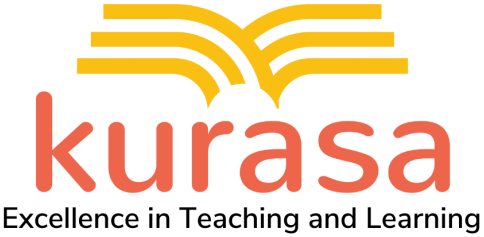Empowering Teachers and Learners for Competency-Based Success
By William Nguru
“You’re not bad at math—you just haven’t mastered it yet.”
— A mindset shift that could change a child’s future.
🌱 What Is a Growth Mindset in Kenyan Schools?
A growth mindset in Kenyan schools is the belief that ability and intelligence can be developed with effort, feedback, and perseverance. Unlike a fixed mindset—which sees intelligence as something you either have or don’t—a growth mindset encourages learners to try, fail, learn, and try again.
This idea, championed by Stanford University professor Carol Dweck, is a practical tool that every Kenyan teacher can use to build confidence, resilience, and performance in their learners.
🇰🇪 Why Growth Mindset in Kenyan Schools Is Essential
As Kenya rolls out the Competency-Based Curriculum (CBC), teachers are no longer just content deliverers—they are facilitators of learning journeys. In this new model:
- Learners progress at different rates.
- Effort and reflection are emphasized over exam scores.
- Critical thinking and problem-solving matter more than rote answers.
A growth mindset is at the heart of this transformation.
👩🏾🏫 The Role of Teachers in Promoting a Growth Mindset in Kenyan Schools
In many Kenyan schools, students hear phrases like:
- “Umeshindwa, hii si yako.” (“You’ve failed—this isn’t your thing.”)
- “Some students are just born bright.”
- “Math si ya kila mtu.” (“Math isn’t for everyone.”)
These are fixed mindset messages. They can:
- Lower self-esteem,
- Kill curiosity, and
- Create long-term avoidance of subjects.
But with a simple shift, we can reframe:
- ✖️ “You failed.” ➔ ✅ “What can you try differently next time?”
- ✖️ “You’re smart.” ➔ ✅ “You worked hard on this. Let’s build on that.”
- ✖️ “You don’t know how.” ➔ ✅ “You don’t know how—yet.”
🧠 10 Practical Strategies to Build a Growth Mindset in Kenyan Classrooms
| Strategy | Example in a Kenyan Classroom |
|---|---|
| 1. Normalize Struggle | Tell learners, “Struggling with this is normal. That’s how you grow.” |
| 2. Celebrate Mistakes | Use mistakes as learning moments. Let learners correct them collaboratively. |
| 3. Use the word “Yet” | Say “You don’t understand the map work yet,” not “You don’t understand.” |
| 4. Emphasize Process | Ask: “How did you solve that?” not just “Is your answer right?” |
| 5. Set Small Goals | Let learners aim to master just one skill or topic each week. |
| 6. Model Growth | Share your own struggles—e.g., “Even I didn’t like fractions, but practice changed that.” |
| 7. Make Challenges Fun | Introduce timed team challenges or role-playing activities. |
| 8. Encourage Peer Learning | Pair stronger and weaker learners for shared tasks. |
| 9. Avoid Labelling | Never call a student “lazy” or “weak.” Focus on their actions, not identity. |
| 10. Give Realistic Praise | Say “You kept trying different ways. That’s impressive!” instead of just “Good job.” |
Learn more about growth mindset theory from Mindset Works, the organization co-founded by Carol Dweck.
🧩 Overcoming Barriers to Growth Mindset in Kenyan Schools
❌ Resistance from Teachers:
Some teachers may say, “I’ve taught this way for 20 years.”
🛠 Tip: Show small wins. Share learner stories or class results that improved with mindset changes.
❌ Time Constraints:
Teachers are under pressure with crowded timetables.
🛠 Tip: Integrate mindset language into regular feedback. It doesn’t require extra lessons.
❌ Low-Resource Environments:
Even with no computers or textbooks, growth mindset is free.
🛠 Tip: Use chalkboard examples, storytelling, and peer feedback to reinforce the ideas.
Explore additional local resources from TSC Kenya and Kurasa’s CBC alignment page. (DoFollow, Internal Link)
🎨 Suggested Visuals for Growth Mindset in Kenyan Schools
- Infographic: Fixed vs Growth Mindset
- Poster: “10 Classroom Phrases to Build a Growth Mindset” (Swahili-English)
- Photo Collage: CBC science group work, rural classrooms, teacher-pupil interaction
- Reflection Box: “How I Changed My Mindset” with real teacher quotes
- Cartoon Strip: Learner facing difficulty and overcoming it
🔗 How Kurasa Supports Growth Mindset in Kenyan Schools
At Kurasa, we believe growth mindset is more than motivation—it’s a method. That’s why we:
- Embed growth-focused feedback into our digital assessments.
- Train teachers on constructive student feedback through our platform.
- Provide CBC-aligned tools that reward effort, creativity, and mastery, not just correct answers.
Explore our full platform at Kurasa Workspace
🗒️ Closing Thought
“Education is not the filling of a pail, but the lighting of a fire.” — William Butler Yeats
A growth mindset doesn’t just improve test scores—it equips learners with the confidence to face life with grit. In today’s Kenya, where change is rapid and expectations are high, the best gift a teacher can give is not just knowledge—but the belief that learning never stops.
